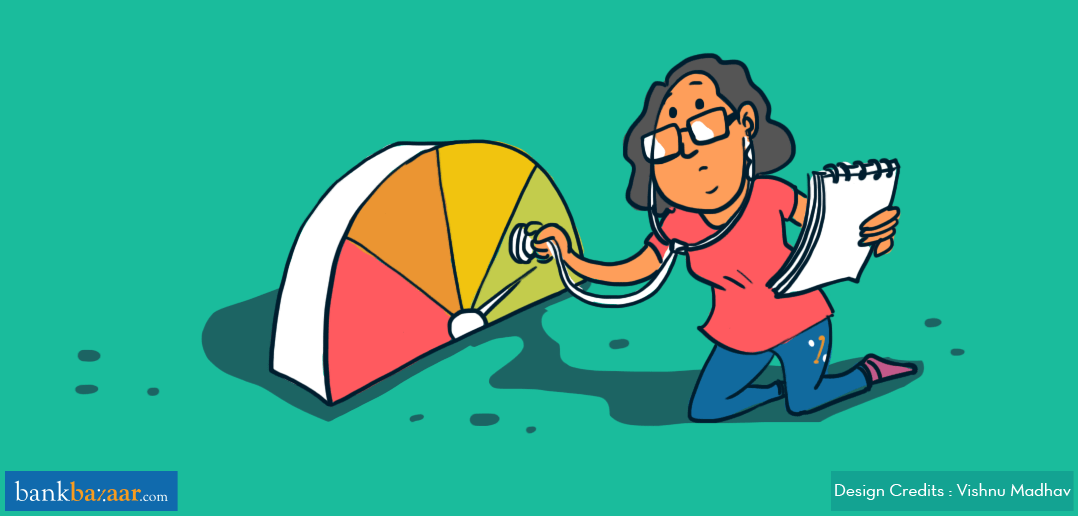Want to boost your Credit Score? The best way to start is to gain a solid understanding of the basics. Read more and find out!

Remember when you were a kid, how just thinking about learning to ride your bicycle was intimidating? Well, it’s the same with everything new. At first glance, the concept of a Credit Score and credit report may sound daunting, but this fear is only present when you’re not in the know of the basic things that govern a certain thing.
Let’s take you back to the bicycle reference; how did we (at least most of us) finally get over our fear and eventually master the art of riding a bike? Well, let’s discuss the basic steps we took and then understand them in the context of our Credit Scores, shall we?
Additional Reading: Check Your Credit Score On The Go
Take Time To Understand The Concept
When it comes to cycling, one just cannot randomly learn to ride until he or she has experientially grasped the basic concept of balance, spatial reasoning, pedalling and a sense of direction. Similarly, you may have a tough task boosting your Credit Score if you don’t know what to exactly do, right?
It helps to first understand the basic mechanics of a Credit Score before creating your action plan for improvement.
What Is A Credit Score?
To put it simply, a Credit Score is a 3 digit number that mirrors how well you’ve managed your credit so far. It acts as an immediate reference for lenders to decide whether you’re creditworthy or not.
Additional Reading: All About Your Credit Score
What Affects Your Credit Score:
- The number and types of credit accounts you have (cards, loans, etc)
- The number of missed or late payments against any of your accounts
- The number of hard enquiries carried out on your profile
- How much credit you’ve used out of your given limits
- The age of your credit history
- Negative statuses on any of your accounts
It’s these very aspects that make up the DNA of your Credit Score. Now, you know the key focus areas. Get your latest credit report and analyse each of the above fields. This is a quintessential first step in your mission to boost your Credit Score.
Learn From Experience And Take Corrective Action
In cycling, your biggest lesson is triggered by your worst fall. The moment you lose balance and experience the failure of falling to the ground, you experience an instinctive urge to learn. You figure out what you did wrong, dust yourself off and be extra careful to get all your moves right from then on.
It’s the same with your credit report. If your current report shows that you’ve missed a couple of Credit Card or Personal Loan payments in the recent past, you need to do whatever it takes to make sure you do not repeat these mistakes, as they have a direct impact on your Credit Score.
Additional Reading: A Brief History Of Credit Scores
Similarly, let’s say you haven’t missed any payment but still find your score to be low. Explore and see if you’re losing points due to other factors, such as:
- Not having a diverse set of credit accounts – Having a variety of credit products, such as a combination of loans and cards is always better for your portfolio. If you’ve been only using Credit Cards so far, your credit history may appear very narrow to lenders.
- Not maintaining a healthy credit utilisation ratio – What does this mean? Simple. Let’s take the example of a Credit Card. Now let’s say you own a card that comes with a credit limit of Rs. 1,00,000. Now, experts recommend that, though you have quite a generous limit of credit at your disposal, you can limit your actual usage to about 30% of your total limit – this is great for your score and shows lenders you manage credit responsibly.
- Another negative point when it comes to your score can be hard enquiries, i.e, enquiries made by lenders before they decide whether to accept or reject your Credit Card/loan application. How do you minimise the number of hard enquiries? Well, by simply spacing out your applications. Don’t apply for a loan and Credit Card in the same month – this will invite more hard enquiries, thus affecting your score.
- If you’re new to the world of credit, it may be your young credit age that’s keeping your score down. At this stage, you pretty much can’t do much about this, but you can remember to always keep your oldest credit account active for the longest time.
- Scan your report and see if banks have filed a suit against you for any reason related to your credit accounts – if you do find any issues, resolve them directly with the bank so that the issue can attain closure.
Though this sounds like a lot, it really isn’t. It’s all about habit. Once you start scanning your credit report with a clear mind, you’ll get the drift and make the right moves in no time, because hey, isn’t that how we just started cycling well?